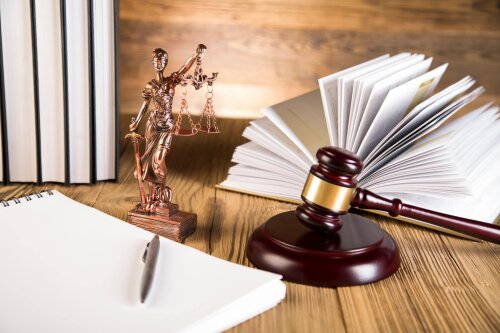Best Civil Rights Lawyers in George
Share your needs with us, get contacted by law firms.
Free. Takes 2 min.
List of the best lawyers in George, South Africa
About Civil Rights Law in George, South Africa
Civil rights law in George, South Africa is designed to protect individuals from discrimination and to ensure equality under the law. This legal domain addresses fundamental rights such as freedom of expression, protection against discrimination based on race, gender, or other characteristics, and the right to equality in public spaces and services. The Constitution of South Africa, widely regarded for its progressive stance on human rights, provides the framework within which civil rights are safeguarded across the country, including George.
Why You May Need a Lawyer
Individuals may require legal assistance in civil rights for various reasons. Common situations include experiencing discrimination in the workplace, denial of service based on personal characteristics, or violations of freedom of speech or assembly. Additionally, individuals facing unlawful detention or those who suspect their rights have been infringed upon by governmental bodies often seek legal counsel to navigate complex legal systems and advocate for their rights effectively.
Local Laws Overview
In George, South Africa, civil rights are enshrined in national legislation, with the Bill of Rights in the South African Constitution being a pivotal document. Key legislations include the Promotion of Equality and Prevention of Unfair Discrimination Act (PEPUDA), designed to eradicate discrimination and promote equality, and the Labour Relations Act, which protects worker rights. Local implementation ensures these laws address specific community dynamics in George, offering pathways to remedy discrimination and protect civil liberties.
Frequently Asked Questions
What are civil rights?
Civil rights are the protections and privileges given to all citizens by law, intended to ensure fair and equal treatment.
How can I identify if my civil rights have been violated?
Common indicators include unfair treatment based on race, gender, or religion, harassment, or denial of due process under the law.
What should I do if I face discrimination at work?
Document incidents, report the behavior to your employer, and consult a civil rights attorney for guidance on filing a formal complaint.
Can a lawyer help if my freedom of speech is infringed?
Yes, a civil rights lawyer can advise on legal protections for free speech and assist in taking action if your rights are violated.
What legal protections exist against racial discrimination?
National and local laws, like the Equality Act, prohibit racial discrimination and aim to promote equality across different races.
Are there organizations that can help with civil rights issues?
Yes, governmental bodies like the Human Rights Commission and nonprofits focusing on civil rights advocacy can offer support.
How do local laws affect civil rights in George?
Local laws complement national legislation by addressing issues specific to the George community, ensuring nuanced protections and enforcement.
What is the role of the South African Constitution in civil rights?
The Constitution, particularly the Bill of Rights, acts as the cornerstone of civil rights, setting out fundamental rights and freedoms.
Can I file a lawsuit if my civil rights are violated?
Yes, with the help of a civil rights attorney, you can file a lawsuit to seek justice and potentially obtain compensation for damages.
Is legal aid available for civil rights cases?
Legal aid is available to those who qualify, providing access to necessary legal services without undue financial burden.
Additional Resources
For further assistance, consider reaching out to the South African Human Rights Commission, Legal Aid South Africa, or the Equality Court. These organizations offer resources, support, and legal guidance to individuals facing civil rights issues.
Next Steps
If you require legal assistance in civil rights matters, it's essential to act promptly. Start by gathering documentation relevant to your issue and consult with a qualified civil rights attorney in George for expert advice. They can help you understand your rights, explore legal options, and guide you through the process of seeking justice and resolution.
Lawzana helps you find the best lawyers and law firms in George through a curated and pre-screened list of qualified legal professionals. Our platform offers rankings and detailed profiles of attorneys and law firms, allowing you to compare based on practice areas, including Civil Rights, experience, and client feedback.
Each profile includes a description of the firm's areas of practice, client reviews, team members and partners, year of establishment, spoken languages, office locations, contact information, social media presence, and any published articles or resources. Most firms on our platform speak English and are experienced in both local and international legal matters.
Get a quote from top-rated law firms in George, South Africa — quickly, securely, and without unnecessary hassle.
Disclaimer:
The information provided on this page is for general informational purposes only and does not constitute legal advice. While we strive to ensure the accuracy and relevance of the content, legal information may change over time, and interpretations of the law can vary. You should always consult with a qualified legal professional for advice specific to your situation.
We disclaim all liability for actions taken or not taken based on the content of this page. If you believe any information is incorrect or outdated, please contact us, and we will review and update it where appropriate.











